No matter what you think about the latest healthcare reform (dubbed Obamacare), the fact is that things are starting to change in healthcare. We have amazing technology, and there are plenty of smart people out there with great ideas on how we can use technology to implement better healthcare for all. Indeed, if you are working in health administration, you will soon find that changes and innovations are coming. If you want to be up to date on some of the latest thinking with regard to healthcare, one of the best things you can do is to see what’s being said on the topics of public health and medicine at TED.
TED is a small nonprofit organization devoted to the spread of knowledge. TED sponsors conferences, and provides thousands of free and open lectures online. The organization’s devotion is to Ideas Worth Spreading. While TED stands for Technology, Entertainment, Design, the scope has widened to include almost any subject. Healthcare talks (some from TEDMED) are available, with the intent of providing innovative and game-changing ideas to make healthcare more accessible and affordable to more people. If you are interested in the latest advancements an d thinking in healthcare, here are 10 incredible video lectures from TED:
d thinking in healthcare, here are 10 incredible video lectures from TED:
- Eric Dishman: Dishman works for Intel, specifically studying ways to increase care for the aging. In this lecture, titled “Take health care off the mainframe,” Dishman argues that current healthcare practices are outdated, and that tethering healthcare to large institutions is inefficient in this day and age. Instead, he argues, healthcare should be built around home-based solutions that are personal and networked. We have the technology, and the capability, to offer more personal control over healthcare, and we should get out of 1959 and into the 21st Century.
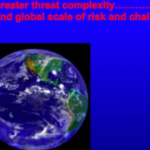 Laurie Garrett: With the H1N1 flu still a recent memory, and with avian flu still something we can remember, Garrett offers lessons that we can learn from the 1918 flu. This video lecture is given by a Pulitzer winner who has written about public health, and pandemics. The fact that travel is less restricted these days means that it is much easier for microbes to hitchhike around the world — increasing the pace at which different diseases can spread from country to country. Garrett’s lecture illuminates the challenges, and attempts to find solutions (not entirely based on government solutions) to the possibility of a worldwide plague, by looking at what happened in 1918. We can learn from our history, and we should — or we might end up repeating it.
Laurie Garrett: With the H1N1 flu still a recent memory, and with avian flu still something we can remember, Garrett offers lessons that we can learn from the 1918 flu. This video lecture is given by a Pulitzer winner who has written about public health, and pandemics. The fact that travel is less restricted these days means that it is much easier for microbes to hitchhike around the world — increasing the pace at which different diseases can spread from country to country. Garrett’s lecture illuminates the challenges, and attempts to find solutions (not entirely based on government solutions) to the possibility of a worldwide plague, by looking at what happened in 1918. We can learn from our history, and we should — or we might end up repeating it. Paul Stamets: Will mushrooms save the world? They just might, according to Stamets. Stamets is a mycologist (someone who studies fungi) who believes that it is possible for mushrooms to save the world. He is developing a number of technologies related to fungi. One of the ways that fungi could help in terms of health, has to deal with antibiotics. He believes that mushrooms could help treat smallpox and the flu, as well as helping reduce the public health threats related to polluted soil. Stamets points out that fungi are actually more closely related to humans than many animals. If you are interested in what these interesting organisms can actually do for our long-term health, this is an interesting lecture.
Paul Stamets: Will mushrooms save the world? They just might, according to Stamets. Stamets is a mycologist (someone who studies fungi) who believes that it is possible for mushrooms to save the world. He is developing a number of technologies related to fungi. One of the ways that fungi could help in terms of health, has to deal with antibiotics. He believes that mushrooms could help treat smallpox and the flu, as well as helping reduce the public health threats related to polluted soil. Stamets points out that fungi are actually more closely related to humans than many animals. If you are interested in what these interesting organisms can actually do for our long-term health, this is an interesting lecture.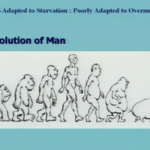 Dean Ornish: Not only is the U.S. itself becoming more disease-prone, but the exportation of U.S. eating habits is contributing to an obesity epidemic around the world as people eat, live and die more like Americans. Ornish is a well-known clinical professor at UCSF, as well as the founder of the Preventative Medicine Research Institute. He points out that many of the diseases people are dying from now are preventable. Adopting a better diet, and better lifestyle choices, we can prevent diseases like Type II diabetes, heart disease, cancer and more. He points out that before the globalization of the American diet, Asians were the healthiest people in the world, and now they are seeing increases in poor health due to a change in diet. Ornish suggests we add more Asian elements to our diets to prevent disease.
Dean Ornish: Not only is the U.S. itself becoming more disease-prone, but the exportation of U.S. eating habits is contributing to an obesity epidemic around the world as people eat, live and die more like Americans. Ornish is a well-known clinical professor at UCSF, as well as the founder of the Preventative Medicine Research Institute. He points out that many of the diseases people are dying from now are preventable. Adopting a better diet, and better lifestyle choices, we can prevent diseases like Type II diabetes, heart disease, cancer and more. He points out that before the globalization of the American diet, Asians were the healthiest people in the world, and now they are seeing increases in poor health due to a change in diet. Ornish suggests we add more Asian elements to our diets to prevent disease.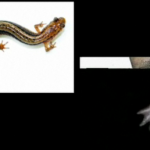 Anthony Atala: Instead of transplanting organs from others, Atala suggests that perhaps we could grow new organs. Atala runs a lab at Wake Forest University at the Institute for Regenerative Medicine. He is looking for ways to help us age better, and live better. He is involved in the development of bio-materials and tissue fabrication that could revolutionize the way we view medicine. He looks at salamanders, and how they regenerate, and looks at how humans might be able to do something similar. We might see the capability to print human tissue and even grow organs. Atala presents different possibilities for the idea of human regeneration, and the ability to grow organs. He even shows examples of bio-engineered blood vessels.
Anthony Atala: Instead of transplanting organs from others, Atala suggests that perhaps we could grow new organs. Atala runs a lab at Wake Forest University at the Institute for Regenerative Medicine. He is looking for ways to help us age better, and live better. He is involved in the development of bio-materials and tissue fabrication that could revolutionize the way we view medicine. He looks at salamanders, and how they regenerate, and looks at how humans might be able to do something similar. We might see the capability to print human tissue and even grow organs. Atala presents different possibilities for the idea of human regeneration, and the ability to grow organs. He even shows examples of bio-engineered blood vessels.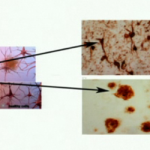 Gregory Petsko: If we don’t do something, Petsko believes that we will see an epidemic of neurological diseases on a worldwide scale. He points out that the population is aging all around the world, and that by the year 2050, a large portion of the population will be over the age of 65, and a significant portion will be beyond the age of 80. Right now, we are already seeing an increase in the number of cases of neurological diseases related to age. However, as the population ages, this problem will become more pronounced. Petsko, a biochemist with Dagmar Ringe, is working to understand proteins, and how they work in the brain. He shares his thoughts on how neurological diseases like Alzheimer’s might be slowed — or even reversed. But first we need a better understanding of the brain.
Gregory Petsko: If we don’t do something, Petsko believes that we will see an epidemic of neurological diseases on a worldwide scale. He points out that the population is aging all around the world, and that by the year 2050, a large portion of the population will be over the age of 65, and a significant portion will be beyond the age of 80. Right now, we are already seeing an increase in the number of cases of neurological diseases related to age. However, as the population ages, this problem will become more pronounced. Petsko, a biochemist with Dagmar Ringe, is working to understand proteins, and how they work in the brain. He shares his thoughts on how neurological diseases like Alzheimer’s might be slowed — or even reversed. But first we need a better understanding of the brain.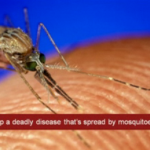 Bill Gates: Now that he’s no longer doing as much with regard to Microsoft, Bill Gates is doing thinking about global health and medicine. One of the interesting things he is doing is talking about disease and how it affects children’s lives. This talk was made famous by the fact that Gates released mosquitoes into the audience. He talks about diseases that affect children in developing countries, and healthcare. One of the issues he talks about is malaria, and what can be done to reduce this healthcare scourge that still affects a large portion of the world’s children. He relates healthcare in developing countries to innovation and interesting efforts at philanthropy. He points out that because diseases like malaria are in poor countries, we don’t pay attention to them. He offers ideas for how we can enhance healthcare in these countries, and how we can maybe begin spending more on malaria prevention than preventing baldness.
Bill Gates: Now that he’s no longer doing as much with regard to Microsoft, Bill Gates is doing thinking about global health and medicine. One of the interesting things he is doing is talking about disease and how it affects children’s lives. This talk was made famous by the fact that Gates released mosquitoes into the audience. He talks about diseases that affect children in developing countries, and healthcare. One of the issues he talks about is malaria, and what can be done to reduce this healthcare scourge that still affects a large portion of the world’s children. He relates healthcare in developing countries to innovation and interesting efforts at philanthropy. He points out that because diseases like malaria are in poor countries, we don’t pay attention to them. He offers ideas for how we can enhance healthcare in these countries, and how we can maybe begin spending more on malaria prevention than preventing baldness.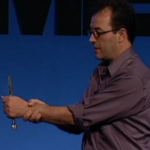 Eric Mead: This magician and mentalist explains the placebo effect. It’s an interesting look at the deception involved in the way the mind deals with perception. Mead relates this to the placebo effect. It may be strange to think of a mentalist explaining a healthcare concept, but it is entertaining and interesting. He points out that perception plays a great role in healthcare, and how effective treatments are. This explains why studies have shown that injections of nothing, sugar pills and other placebos can be surprisingly effective. The way we react to something, Mead points out, can affect outcomes in a very real way. Even knowing something isn’t “real” can still elicit an emotional response — as Mead demonstrates even as he reveals a few of the tricks behind his act.
Eric Mead: This magician and mentalist explains the placebo effect. It’s an interesting look at the deception involved in the way the mind deals with perception. Mead relates this to the placebo effect. It may be strange to think of a mentalist explaining a healthcare concept, but it is entertaining and interesting. He points out that perception plays a great role in healthcare, and how effective treatments are. This explains why studies have shown that injections of nothing, sugar pills and other placebos can be surprisingly effective. The way we react to something, Mead points out, can affect outcomes in a very real way. Even knowing something isn’t “real” can still elicit an emotional response — as Mead demonstrates even as he reveals a few of the tricks behind his act.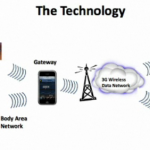 Eric Topol: The future of medicine and healthcare, asserts Topol, is wireless. This leading cardiologist is offering a look into the way that mobile devices can be an integral part of healthcare. Topol points out that the stethoscope is beyond outdated by the way we can already monitor vital signs on smartphones and hand held ultrasound devices. He talks about the new sensors and more. With the advent of wireless medicine, it is possible, and will be even more possible in the future, for us to monitor our own health, and to get personalized health information sent to healthcare professionals and others who might need it. Technology could make it possible to monitor people remotely, reduce costs, and make healthcare more personal.
Eric Topol: The future of medicine and healthcare, asserts Topol, is wireless. This leading cardiologist is offering a look into the way that mobile devices can be an integral part of healthcare. Topol points out that the stethoscope is beyond outdated by the way we can already monitor vital signs on smartphones and hand held ultrasound devices. He talks about the new sensors and more. With the advent of wireless medicine, it is possible, and will be even more possible in the future, for us to monitor our own health, and to get personalized health information sent to healthcare professionals and others who might need it. Technology could make it possible to monitor people remotely, reduce costs, and make healthcare more personal.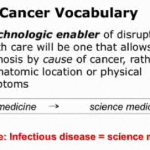 David Agus: It is possible to treat cancer using a new, cross-disciplinary approach, says Agus. He is a conventional cancer doctor who has thrown himself into the future of medicine, and in innovative ideas related to healthcare. He suggests that rather than focusing on understanding cancer as an individual cell or gene, we should focus on treating the whole body and controlling cancer. Agus argues that we have been shortsighted in our approach to identifying and fighting cancer. He points out that we should be using protein analysis, computer modeling and atypical drugs to analyze the body as a whole, and to treat the entire system. He also points out that we need to change the way we describe and talk about cancer. Agus also makes the argument that it should be possible to prevent most cancers.
David Agus: It is possible to treat cancer using a new, cross-disciplinary approach, says Agus. He is a conventional cancer doctor who has thrown himself into the future of medicine, and in innovative ideas related to healthcare. He suggests that rather than focusing on understanding cancer as an individual cell or gene, we should focus on treating the whole body and controlling cancer. Agus argues that we have been shortsighted in our approach to identifying and fighting cancer. He points out that we should be using protein analysis, computer modeling and atypical drugs to analyze the body as a whole, and to treat the entire system. He also points out that we need to change the way we describe and talk about cancer. Agus also makes the argument that it should be possible to prevent most cancers.
Did you enjoy this article?

